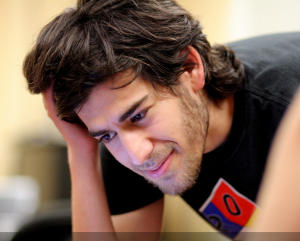In the ‘good’ old days, a business would sell a new product based on its perception of what potential customers might want. A product or service would be designed, priced and shipped, and there would be precious little that you could do other than wait for the demand (or lack thereof) to be proved beyond any doubt as the money either subsequently piled in or the launch flopped.
It didn’t take long for businesses to start to refine their approach, eager as they were to develop more successful products using more efficient methods. Market research, focus groups and interviews with target customers were all introduced to help accelerate the time spent from initial product design to the launch of a product that (on paper at least) satisfied certain articulated demand.
With the emergence of software businesses, the delay between research and shipping a minimum viable product in order to capture valuable market feedback has contracted significantly. This can be a double-edged sword however, with significantly cheaper costs also bringing with it far lower barriers to entry for competitors. And this process is likely to only get faster with the growing use of 3D printing to produce rapid prototyping that will act as the first iteration of a product for potential customers.
But whilst the process is speeding up and more valuable customer feedback is increasingly being captured, there is also a far wider strategic risk that many businesses simply fail to consider. The problem is that any potential customer who is able to tell you what they need is just as able to pass on the same information to your competitors. So you face a very real risk of becoming engaged in a feature-war with competitors as you each continue to replicate the other’s features in the course of a competitive price war that continues to spiral downwards as both sides seek to capture market share.
The alternative is to come up with a product or service that is far more valuable, one that delights the customer. Achieve this and customers will be happy to pay a premium. Easier said than done, no doubt about it. And what makes it worse is that this just isn’t possible if you are relying alone on conversations that you set up with people that may turn out to be potential customers. As Henry Ford once commented when looking back on his successful car business, if he’d started by asking his customers what they wanted, they’d have said ‘a faster horse’. To succeed in what is likely to be a far more complicated task, you need to be far more empathetic to the lives and needs of your customers. By pursuing a ‘design thinking‘ mindset. the truly successful business looks at the bigger picture:
“Approaching a problem with a design thinking mindset, however, certainly takes into account what a customer says, but simply as one input among many. In this approach, observing the way people really live, developing a deep understanding of the real problems they have, and gaining an appreciation of the “hacks” they devise to overcome them can deliver an understanding of prospective customers’ needs that is more accurate than what any of those prospective customers could ever articulate on their own.” (Stratechery)
I find this approach fascinating because it makes clear that ‘design’ isn’t about the product simply looking amazing. Instead it’s all about building up that knowledge and understanding of those that you wish to convert into customers. To be successful, you can’t help but end up understanding more about the group’s motivations and needs on a far deeper level than even they’re likely to be conscious of themselves. And when you’re creating a product that aims to delight and command above-average loyalty, that seems to be a pretty sound investment to my mind.

